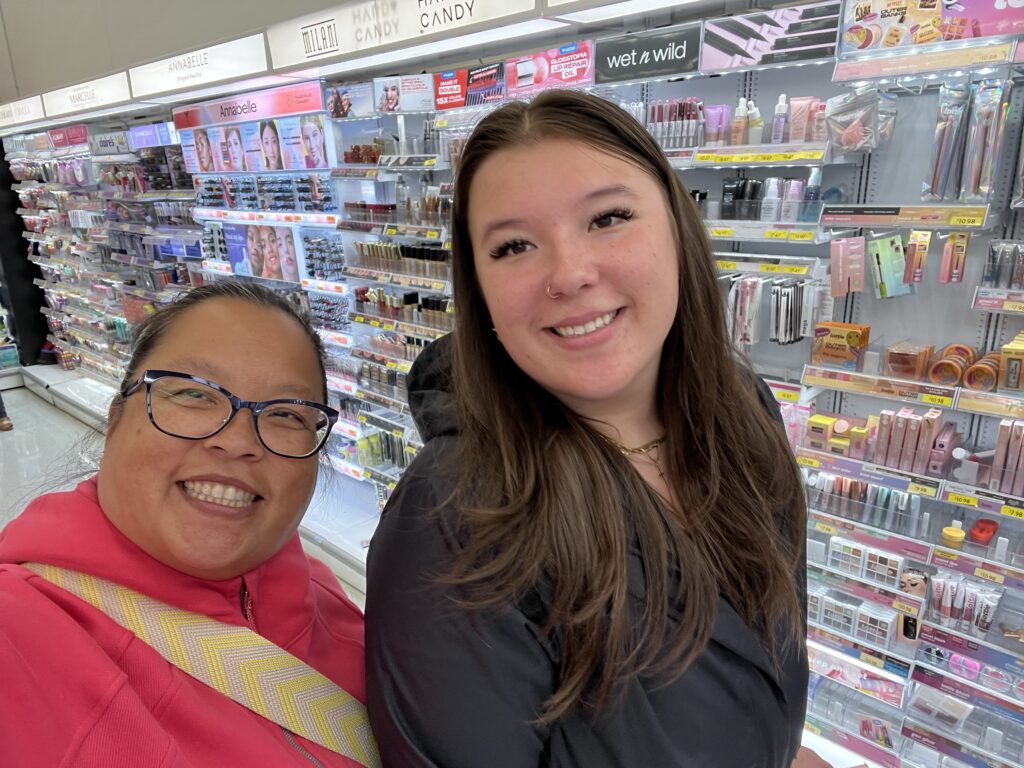
My name is Alice Christine Ho Younghusband and I am a second generation Chinese-Canadian woman. I was born and raised in Prince Rupert, BC; schooled in Vancouver at the University of British Columbia and Simon Fraser University; and lived on the Sunshine Coast, BC for 25-years. I have one daughter and I have been involved in BC education for 30-years. My teaching career started with teaching secondary mathematics, science, and chemistry, then served as an elected school trustee for two-terms. Currently, I teach at the University of Northern British Columbia as an Assistant Professor in the School of Education.
Ever since leaving K-12 education, I’ve been exploring my identity and integrity of my teaching by reflecting on my pedagogical journey. I’ve learned so much about myself and my practice, and continue to learn more about my positionality, ethnicity, and research interests in math education, teacher education, and climate change education. My research program seems meandering at best, but what holds it together is the intersection between out-of-field teaching, professional learning, and identity development. Entangled in all that edu-ness is my interest in policy, practice, and leadership. My research investigates big ideas such as belonging, understanding of self, and one’s sense of self-efficacy.
If being authentic to myself and my work, my true love is working with students. They keep me humble and I enjoy the connection, community, and collaboration. Over the last few years, I’ve been honing my practice to align it to who is am as a person. To accomplish this feat, I had to learn more about who I am along with knowing more about the subject matter and students (Palmer, 2009). This learning has been my pedagogical journey. For example, to teach anti-racism curriculum, I had to understand and unpack my experiences with racism. The violent death of George Floyd in 2020 called to question how I was moving through the world. It was clear to me then that I have to not pretend to be someone else so that I could “fit in.” This way of being is not “true belonging,” but rather a betrayal of self (Brown, 2017).
Who am I? A classic existential question to ask oneself midlife. No clichés, of course. But the midlife unravelling has brought me closer to who I am. I am so grateful to my students and my kid for walking beside me while I move towards authenticity in my personal and professional life (albeit, the same thing given that I am the same person). I feel that my teaching practice is finding its flow and my research program about to flourish. For this, I am happy. It’s not the letters of reference or publications that matter, but rather the intrinsic reward and satisfaction of the unsolicited compliments, moments of connection, and the joy of learning. It has taken some time to reach this sense of peace, solace, and self-belonging.
I have nothing to prove and my rest and wellbeing are at the forefront of my happiness. Much of my sense-making I attribute to curling. I’ve played that sport ever since I was 13 years old. It’s only been in recent years that I have found my love for curling again. I am so happy that I did. I am able to make sense of the world through my experience with curling and feel that it’s a time when I am my true self. I am grateful to return back to my location statement. I can see over the last few years that I have changed, which is true about one’s identity and sense of self. From praxis, that is action and critical reflection, one can examine, observe, and learn more about themselves with curiosity, kindness, and compassion.
